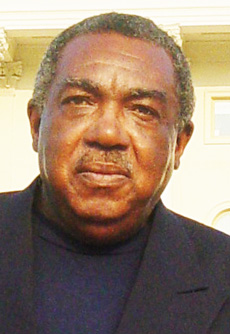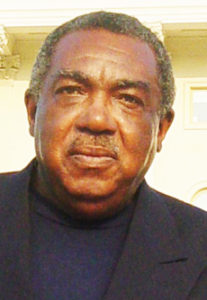

by Peter Bailey
During the past 20 years I have attended numerous conferences hosted by the Congressional Black Caucus Foundation (CBCF) and the Association for the Study of African American Life and History (ASALH). CBCF’s 49th Annual Legislative Conference was held, as always, Sep. 11-15 in Washington D.C., while ASALH’s 104th Conference was held this year, October 2-6 in Charleston, SC. During two days CBCF presented over 100 workshops, panels and sessions; ASALH, in its three days featured over 200 of the same. The panels, workshops and sessions provided an opportunity for registrants to attend and participate in the discussion and analyzing of a significant number of education, economic, political issues in small settings.
There was also opportunity for registrants to attend two Town hall sessions at CBCF’s conferences and two plenary sessions at the ASALH event. The CBCF Town hall sessions were 400 years: Our Legacy, Our Possibilities and The Commission on the Social Status of Black Men and Boys. ASALH’s plenary sessions were Moving, Marking and Making the Beat: A Century of African American Migration and 400 Years of Perseverance: Stolen From Africa But Making Black Lives Matter.
Which brings me to what I consider the continuous and major flaws of all their conferences that I have attended through the years. Both present way too many panels, workshops and sessions and a glaringly insufficient number of town hall and plenary sessions. Registrants at both conferences are black folk, with skills and expertise in a wide variety of educational, economic, political and cultural arenas. Throughout the year they probably have opportunities to meet and discuss issues with others in their field. That’s why when they attend the national conferences hosted by CBCF and ASALH, there should be an opportunity to attend numerous town hall and plenary sessions during which issues are analyzed and discussed that go beyond their particular field of study.
For instance, there should be sessions that provide information and guidelines on how black folks can more effectively use their collective economic resources to promote and protect their interests in this basically white supremacist society. They can also do the same when subjects such as Pan-Africanism as a force that can assist in blocking the continents of Asia, Europe and North America from exploiting Africa’s wealth in minerals; also guidelines on dealing with advances in science and technology, travelling to visit Africa, South America and the Caribbean. Also on confronting health issues that challenge black communities. There can be a town hall or plenary session to introduce all registrants to black, historical warriors who may not be known to them, warriors such as Mary Elizabeth Bowser, who for two years spied for the Union Army in the Confederate White House.
More town halls and plenary sessions such as the above-mentioned and others would make the CBCF and ASALH conferences even more valuable than they are now. It would have been valuable if either or both conferences had included town halls and plenary sessions on our economic, cultural, educational, psychological and political conditions after 400 years.

Be the first to comment